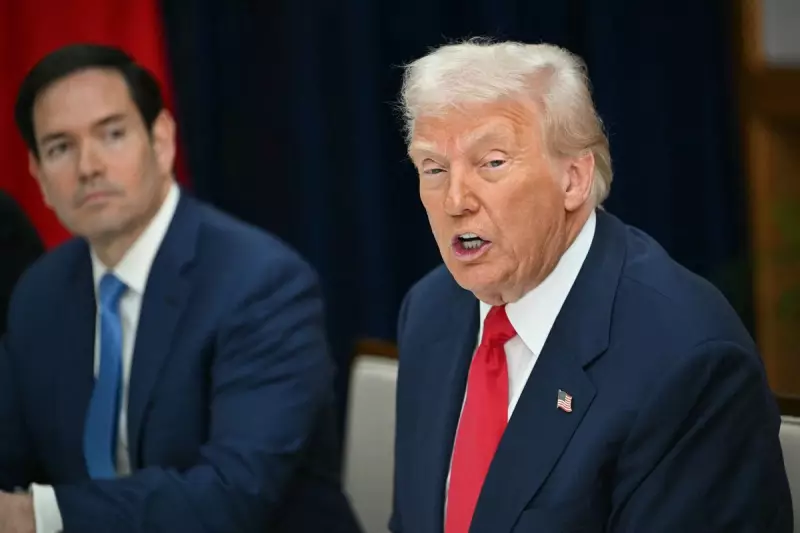
The administration of former President Donald Trump has dramatically escalated its international campaign against left-wing opposition by officially adding four European militant groups to the United States government's list of foreign terrorist organisations.
Unprecedented Designation of Left-Wing Groups
In a significant policy move announced on Saturday 15th November 2025, Secretary of State Marco Rubio revealed that Germany's Antifa Ost, Italy-based International Revolutionary Front, and two Greek organisations - Armed Proletarian Justice and Revolutionary Class Self Defense would be designated as both "Foreign Terrorist Organizations" and "Specially Designated Global Terrorists".
Rubio accused these groups of "conspiring to undermine the foundations of Western Civilization through their brutal attacks" in an official statement released on Thursday. The designations become effective on November 20th, marking the first time the militant antifascist movement has been formally labelled a foreign terrorist threat by the United States government.
Expanding the Definition of Terrorism
The administration claims these European left-wing groups subscribe to revolutionary anarchist or Marxist ideologies, including what they describe as "anti-Americanism", 'anti-capitalism' and anti-Christianity. According to Rubio's statement, these ideologies are being used to "incite and justify violent assaults domestically and overseas".
This development represents a global extension of President Trump's earlier executive order from September that singled out the militant antifascist movement and its financial supporters as a "domestic terror organisation". Critics have noted that no legal "domestic terrorist organization" designation exists under US law, and that Antifa represents a broader ideological movement rather than a single, unified organisation.
The "foreign terrorist organization" labels carry substantial legal weight, potentially leading to financial sanctions, travel restrictions and increased federal law enforcement scrutiny, including surveillance and financial oversight of alleged connections within the United States.
Legal and Political Implications
White House deputy chief of staff Stephen Miller had previously indicated this direction during a White House roundtable discussion on Antifa in September, stating "There are extensive foreign ties, and I think that would be a very valid step" when discussing potential foreign terrorist designations.
The administration appears eager to establish legal justifications to counter left-wing dissent and connect Democratic opponents to the militant movement. Officials, media personalities and right-wing allies have repeatedly accused Antifa of violent attacks against federal law enforcement, while making unsubstantiated claims that Democratic elected officials and supporting organisations are financially backing them and concealing their activities.
Attorney General Pam Bondi emphasised the administration's approach during September's roundtable, stating "Just like we did with cartels, we're going to take this same approach, President Trump, with Antifa: Destroy the entire organization from top to bottom."
Expert Criticism and Concerns
Sociologist Stanislav Vysotsky, author of authoritative works on the subject, expressed significant concerns about the designations. "There seems to be no justification for how they determined any of these groups are foreign terrorist groups", Vysotsky stated, adding that he saw no evidence demonstrating direct ties to any US antifa groups.
Vysotsky warned that "they're just randomly creating boogeymen" in what he characterised as part of a broader "antifa panic". He predicted the administration would struggle to prove connections between domestic antifascist groups and the European organisations now on the State Department's list, but cautioned that "that won't stop them from bringing the full force of federal law enforcement against antifascists domestically".
The Trump administration's addition of 23 entities to the foreign terrorist organisations list this year represents the largest single-year expansion since the list was established in 1997. Historically, the vast majority of groups designated since 2001 have been connected to Islamic extremist organisations like al-Qaeda and the Islamic State that have directly threatened the United States.
This significant policy shift has raised concerns among critics about conflating militant antifascist activism with other forms of ideologically motivated violence responsible for large-scale terror attacks, potentially reshaping the United States' approach to domestic and international security threats.





